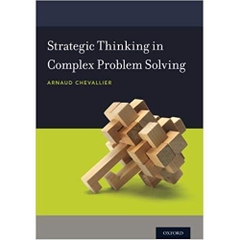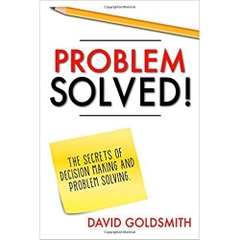-
-
-
Tổng tiền thanh toán:
-
-
Thông tin
-
Tìm sách theo yêu cầu
How can one think about the same thing twice without knowing that it's the same thing? How can one think about nothing at all (for example Pegasus, the mythical flying horse)? Is thinking about oneself special? One could mistake one's car for someone else's, but it seems one could not mistake one's own headache for someone else's. Why not?
Mark Sainsbury and Michael Tye provide an entirely new theory--called "originalism"-- which provides simple and natural solutions to these puzzles and more. Originalism's central thesis is that concepts, the constituents of thoughts, are to be individuated by their origin, rather than epistemically or semantically. The doctrine has further valuable consequences for the nature of thought, our knowledge of our own thoughts, the nature of experience, the epistemology of perception-based beliefs, and for arguments based on conceivability. Sainsbury and Tye argue that although thought is special, there is no special mystery attaching to the nature of thought. Their account of the mind considers it as part of nature, as opposed to something with supernatural powers--which means that human beings have more opportunities to make mistakes than many have liked to think.
R. M. Sainsbury taught at the University of Oxford, University of Essex, and University of London (where he was Susan Stebbing Professor of Philosophy) before coming to the University of Austin in 2002.
Michael Tye encountered philosophy at Oxford, and taught at Temple University, St Andrews, and the University of London before coming to Austin in 2003.
- Link: http://www.amazon.com/Seven-Puzzles-Thought-Originalist-Concepts/dp/019968894X
Mark Sainsbury and Michael Tye provide an entirely new theory--called "originalism"-- which provides simple and natural solutions to these puzzles and more. Originalism's central thesis is that concepts, the constituents of thoughts, are to be individuated by their origin, rather than epistemically or semantically. The doctrine has further valuable consequences for the nature of thought, our knowledge of our own thoughts, the nature of experience, the epistemology of perception-based beliefs, and for arguments based on conceivability. Sainsbury and Tye argue that although thought is special, there is no special mystery attaching to the nature of thought. Their account of the mind considers it as part of nature, as opposed to something with supernatural powers--which means that human beings have more opportunities to make mistakes than many have liked to think.
Product Details
Paperback: 208 pages
- Publisher: Oxford University Press; Reprint edition (September 15, 2013)
- Language: English
- ISBN-10: 019968894X
- ISBN-13: 978-0199688944
- Product Dimensions: 9.2 x 6.1 x 0.8 inches
- Shipping Weight: 11.4 ounces (View shipping rates and policies)
- Average Customer Review: Be the first to review this item
- Amazon Best Sellers Rank: #565,299 in Books (See Top 100 in Books)
Editorial Reviews
Review
"Review from previous edition This engaging, briskly written collaboration presents an original (pardon the pun) theory of concepts ... [Sainsbury and Tye's] theory is highly interesting and their discussion generally illuminating." --Choice
About the Author
R. M. Sainsbury taught at the University of Oxford, University of Essex, and University of London (where he was Susan Stebbing Professor of Philosophy) before coming to the University of Austin in 2002.
Michael Tye encountered philosophy at Oxford, and taught at Temple University, St Andrews, and the University of London before coming to Austin in 2003.
XEM CHI TIẾT TẠI AMAZON.COM
- Thông tin chi tiết
- Mục lục
- Đánh giá & bình luận của người mua
- Những cuốn sách cùng chủ đề hoặc có liên quan
Tại web chỉ có một phần nhỏ các đầu sách đang có nên nếu cần tìm sách gì các bạn có thể liên hệ trực tiếp với Thư viện qua Mail, Zalo, Fanpage nhé
Đăng ký nhận tin qua email
Hãy đăng ký ngay hôm nay để nhận được những tin tức cập nhật mới nhất về sản phẩm và các chương trình giảm giá, khuyến mại của chúng tôi.












